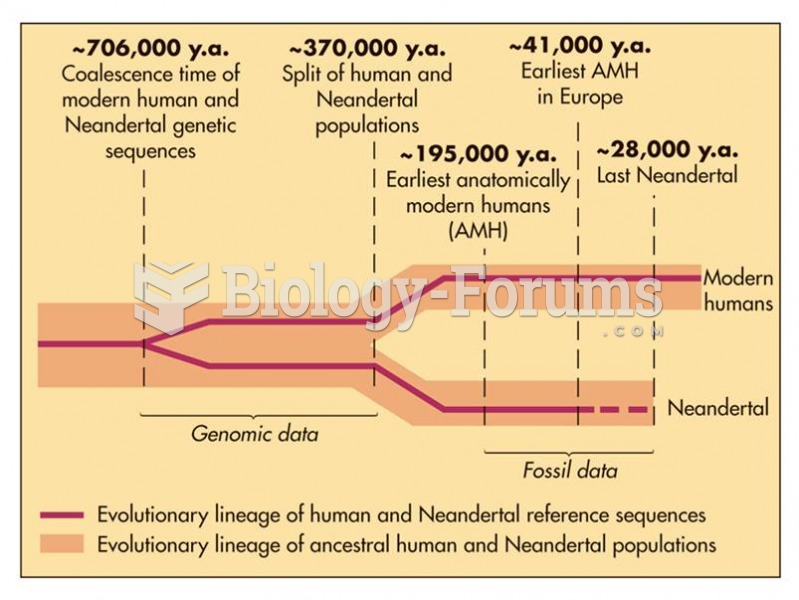|
|
|
Malaria was not eliminated in the United States until 1951. The term eliminated means that no new cases arise in a country for 3 years.
More than 30% of American adults, and about 12% of children utilize health care approaches that were developed outside of conventional medicine.
Vaccines cause herd immunity. If the majority of people in a community have been vaccinated against a disease, an unvaccinated person is less likely to get the disease since others are less likely to become sick from it and spread the disease.
Long-term mental and physical effects from substance abuse include: paranoia, psychosis, immune deficiencies, and organ damage.
According to the FDA, adverse drug events harmed or killed approximately 1,200,000 people in the United States in the year 2015.







